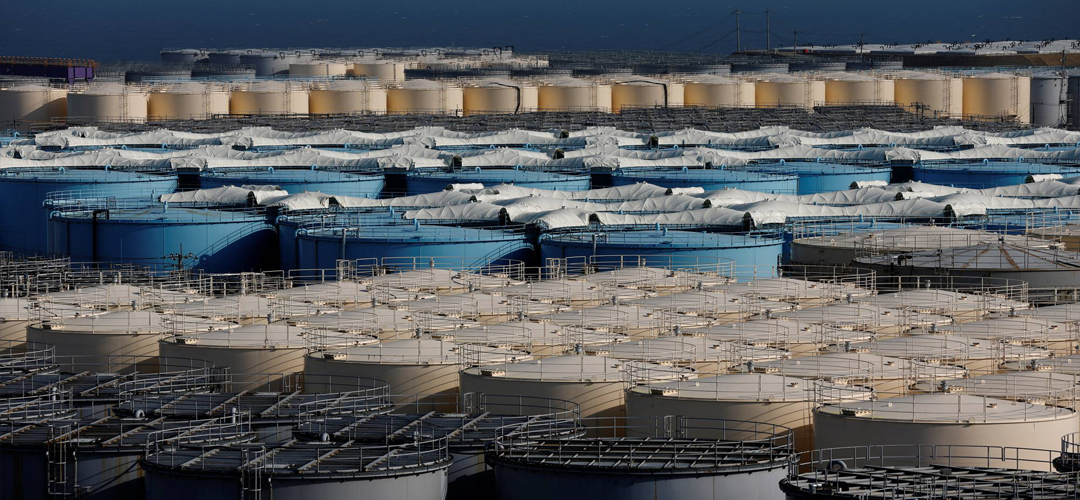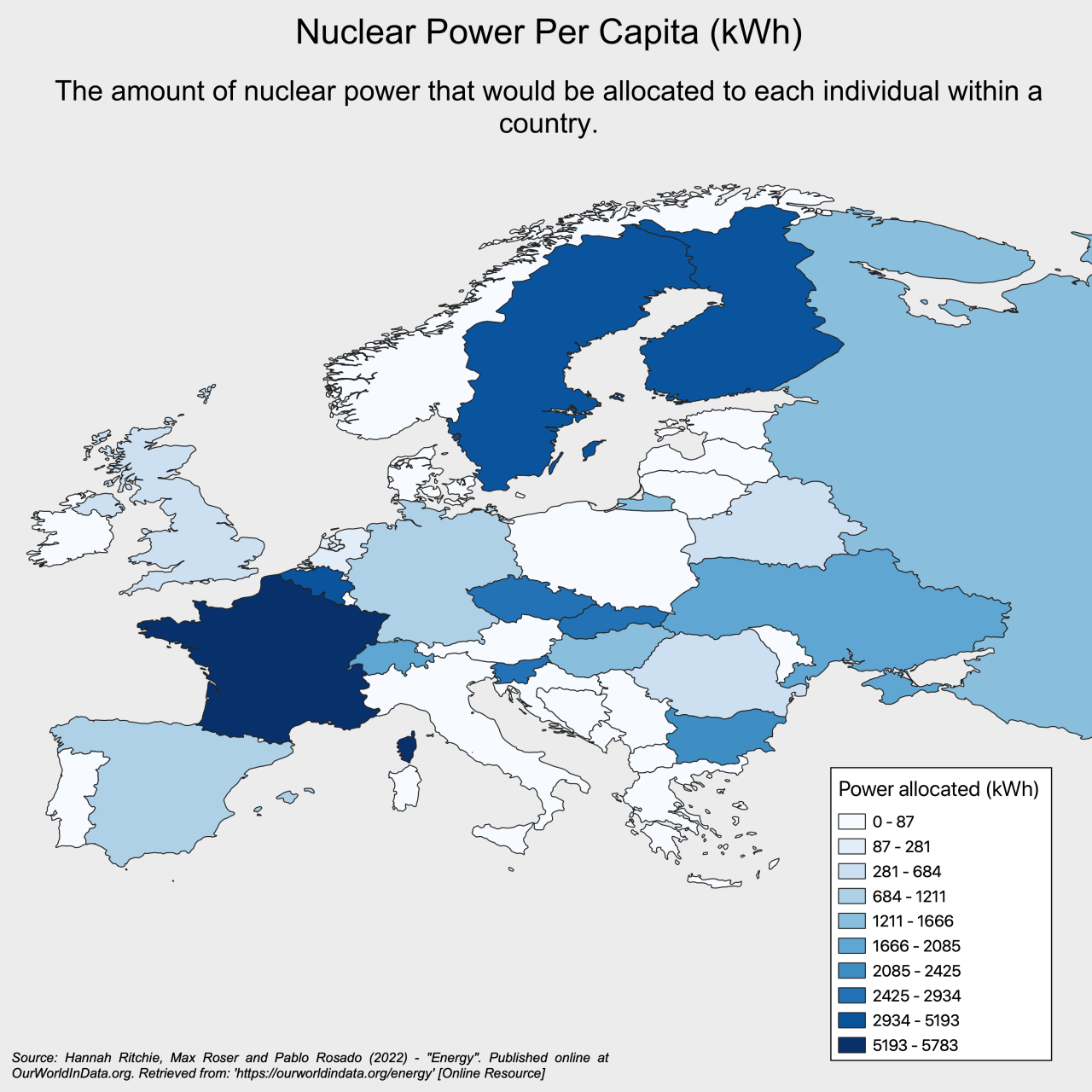EU: Wither Nuclear Power and Ice’s?
April 8, 2023 | Expert Insights

Discussions concerning the energy future of Europe took place among the member states of the European Union last week of March 2023. At the centre of these conversations was whether or not the EU should maintain its technological neutrality while working toward attaining its climate goals.
For years, business lobbyists have advocated the idea of "technological neutrality," which suggests that the European Union should prioritize emission reduction targets without pushing any particular technology. Emmanuel Macron, President of France, and Olaf Scholz, Chancellor of Germany, have expressed support for this concept. Despite this, it seems that the only people who support it are those who advocate for environmentally friendly technologies, such as Macron, who supports nuclear power, and Scholz, who supports internal combustion engines (ICEs) that run on synthetic fuels.
Background
Recently, Germany announced that it will not support a previously agreed-upon deal to ban the sale of ICE-powered vehicles beginning in the year 2035. This marked a dramatic about-face for the country. Germany pushed for an exemption to be granted for ICEs that are driven by liquid e-fuels, which are a by-product of the generation of electricity rather than being derived from fossil fuels.
Because it is unusual for a nation to change its mind before the final vote on a law after provisional approval, this move infuriated the European Parliament and the other EU members. Macron is opposed to such an exemption, but he saw an opportunity for a quid pro quo- accept the exemption for e-fuel in exchange for a freeze on anti-nuclear legislation. For nuclear power to be eligible for European Union funding earmarked for green energy transition, Germany will allow nuclear power to be called "green."
The Energy Ministers from EU countries engaged in a contentious discussion on this subject, with two groups having competing sessions. France has been actively building a new pro-nuclear alliance of EU countries to compensate for the loss of London's pro-nuclear votes in the council due to Brexit. A recommended framework for hydrogen and a taxonomy of green technologies for green finance are two examples of the legislative projects that France is aiming to incorporate nuclear energy. France is also working to include green finance.
Austria and France have formed a new anti-nuclear group called "Friends of Renewables”.
The crucial factor will be Italy's substantial number of votes in the EU Council, which will be weighted according to the country's population. After a vote in the early 1990s, Italy was forced to shut down all of its nuclear power reactors. The government is considering whether to restart its nuclear power program.
A day before EU countries and legislators are expected to agree on stricter EU objectives to grow renewable energy by 2030, negotiations regarding whether to recognize nuclear power under the EU's renewable energy targets have been stalled due to the impasse that has arisen over nuclear power. Eleven nations, led by Austria, Germany, and Spain, met to discuss their efforts to exclude nuclear energy from the renewable energy targets. Among the nations in attendance were Austria and Germany. They argue that including nuclear energy in the renewable energy targets will cause the EU's financial resources to be redirected away from renewables.

Analysis
Europe's key climate policies may be derailed as a result of the continuous conflict over nuclear energy and the problem of ICEs, in addition to e-fuels.
To assure a sustainable and environmentally friendly energy future, the EU must strive toward reaching an agreement on these concerns. The dispute over the energy future of Europe has evolved into a battleground for competing interests and ideologies, with the idea of technical neutrality serving as the topic of primary focus in these debates. Others are pushing for particular environmentally friendly technologies, such as nuclear power or e-fuels, to be emphasized in climate legislation. Others are advocating for a technology-agnostic approach to the law. Recent disagreements and talks between member states of the EU have brought to light the difficulties and complexities of finding a compromise on climate policies that address emission reduction targets and energy security.
The EU is working toward more stringent standards for renewable energy sources; nonetheless, the role of nuclear energy and other alternative technologies will continue to be a difficult topic that requires careful thought and political manoeuvrings. For some time now, parties have been negotiating on the EU's energy future. The primary focus of these discussions has been on striking a balance between satisfying the growing demand for energy, lowering greenhouse gas emissions, and maintaining enough energy supply. The use of nuclear power and the development of internal combustion engines, on the other hand, are two contentious issues that have become the focal points of the argument.
On the one hand, some member states believe that nuclear power is a secure and effective source of low-carbon energy that can assist the EU in achieving its emissions reduction targets. Others are worried about the possible dangers linked with nuclear power and support a total phase-out of nuclear energy as a solution to their concerns. On the other hand, certain member states are advocating for a gradual move away from internal combustion engines (ICEs) in the automobile industry. They contend that this will enable a seamless and sustainable transition toward electric vehicles. Others believe that the only way to successfully cut emissions from the transportation sector is to eliminate internal combustion engines (ICEs) and speed up the transition to electric vehicles.
Assessment
- The problems that the EU must overcome to achieve a sustainable energy future have been brought to light by these debates. Finding a solution that satisfies all of the member states' interests as well as their concerns is necessary to have an energy policy that is coherent and efficient. While this may sound like a hard nut to crack, but is the only way an entity as large as the EU can reach some kind of consensus.
- In the end, the EU's capacity to successfully navigate these arguments will determine whether or not it will be able to meet its emissions targets and ensure a sustainable future in the energy sector.
- The rest of the world is watching keenly because Europe has always been the leader in green initiatives and is, even now, far ahead of the rest of the world in implementing what it preaches.








Comments